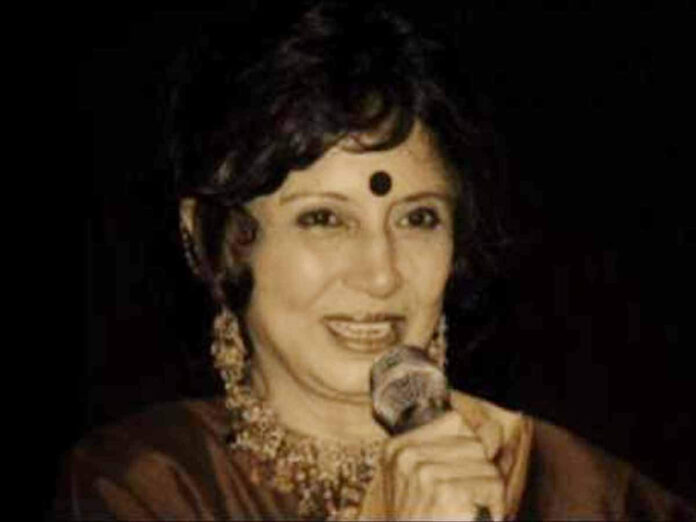Veteran singer Sharda, whose super-hit song, Titli udi, is popular even today, more than 55 years after it was rendered by her, passed away today (14th June) in Bombay due to cancer. She was 85.
Sharda Rajan Iyengar, who was in her prime in the 1960s and 1970s, may not have been a threat to the Mangeshkar sisters when they ruled the music world but she managed to stand her own and make a comfortable place for herself even then, which itself was creditable. Among the songs she lent her voice to (either solo or with other singers) were Dekho mera dil machal gaya from Suraj, Aa aayega kaun yahan and Jaan-e-chaman shola badan from Gumnaam, Bakkamma Bakkamma from Shatranj, Baat zara hai aapas ki from Jahan Pyar Miley, Leja leja leja mera dil from An Evening In Paris, Chale jaana zara thehro and Duniya ki sair kar lo from Around The World, Woh pari kahan se laaoon from Pehchan, Jab bhi yeh dil udaas hota hai from Seema, and Tum pyar se dekho from Sapno Ka Saudagar. She had released her own album, Andaaz-E-Bayan Aur, featuring her own compositions based on Mirza Ghalib’s ghazals. She also scored the music for films like Garibi Hatao (1973), Kshitij (1974), Maa Bahen Aur Biwi (1974), Mandir Masjid (1977), Tu Meri Main Tera (1980) and Maila Aanchal (1981). For Garam Khoon, she penned the lyrics for a song (Ek chehra jo dil ke kareeb) which had music composed by Shankar. That song was rendered by Lata Mangeshkar and picturised on Sulakshana Pandit. Besides Hindi, Sharda had also lent her voice to Telugu, Marathi and Gujarati songs.
Sharda’s maiden film song, Titli udi ud jo chali from Suraj, was tied with Mohd. Rafi’s Baharon phool barsao (also from Suraj) for the Filmfare Award for 1966 when there was only one award for best playback singer rather than two separate awards for male and female playback singers. Although the award went to Mohd. Rafi, Sharda created history because it was after this episode that Filmfare started two categories — male and female — for the best playback singing award. She went on to be nominated four times thereafter by Filmfare, and winning two awards. She sang for almost all films in which Shankar Jaikishan were the music directors including Kaanch Ki Deewar (1986). In fact, Shankar promoted her a lot. She lent her voice to many top heroines of her time.
Early in her career, she was offered a voice test by none other than Raj Kapoor when he heard her singing at Shrichand Ahuja’s home in Tehran. She was the first Indian female singer to record her own pop album with Sizzlers. It was released in 1971 by HMV.





























